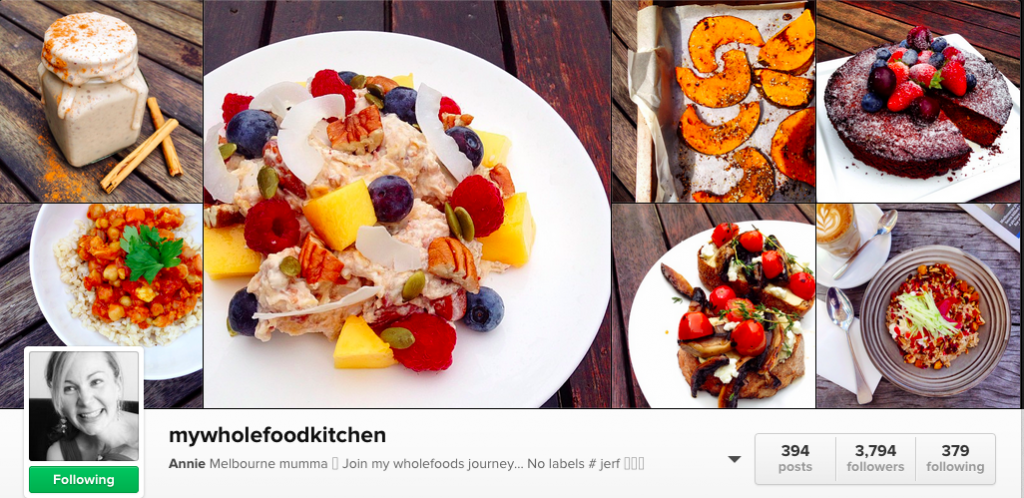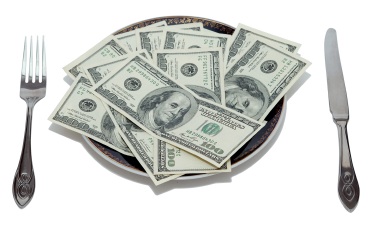
If you missed Part 1 on how to cut your food costs & save for travel from home, then you've got some thrifty catching up to do. You can bookmark it for later, or give it a read now, because truly, there's no better time to save for travel than the present!
Food is one of the biggest fixed expenses of our day-to-day living. Yet for many, it takes the backseat in efforts to save up for travel. Most prefer exhausting hours of their time in search of coupons or flight deals, over adjusting their food habits, which equates to more consistent savings.
The good news is this: if you ARE willing to put a bit of thought and energy into one of your biggest fixed expenses, you can inflate your travel savings pretty quickly. So, you ready for seconds? Here's 11 more thrifty tips to cut your food spending and travel sooner!
1. Stop buying single portion/individually wrapped foods.
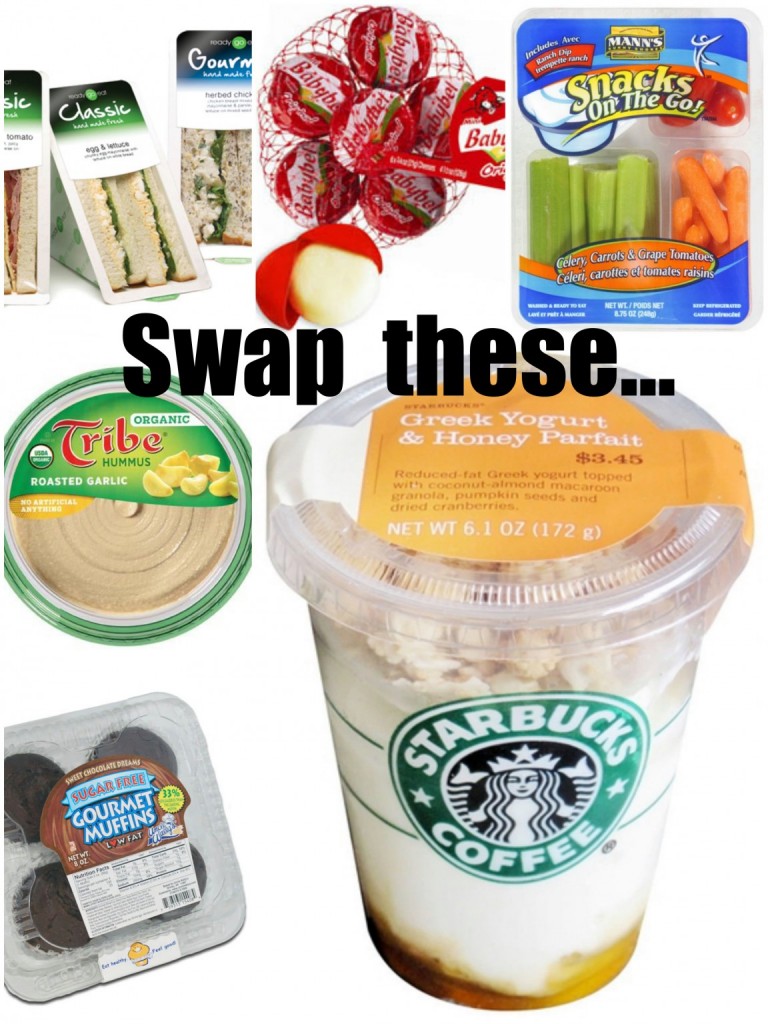

The inventor of individually packaged food is obviously now a rich genius. Prepared foods are ridiculously inflated. If I catch myself reaching for a pre-made party tray, I feel like a frugal failure (unless it's reduced, of course). Prepped stuff is travel bucks down the drain, if you ask me!
Here's some easy alternatives to the pricier, plastic-wrapped versions:
- Chop up your own veggies, fruits & cheese and keep in the fridge. Note: chopped celery, carrots & broccoli should be submerged in water. Cucumbers should be on their own or they'll get soggy! Cheese must also be wrapped tightly to avoid hardening.
- DIY hummus in minutes for <$1 a tub! Add chilli oil, roasted garlic, or sundried tomatoes.The flavours are endless (and affordable)!
- Swap flavoured cans of tuna for regular ones at a fraction of the price. Combine with DIY hummus, spices & chopped/sliced veggies for flavour instead.
- Bake a dozen muffins and freeze half for an ongoing snack supply (simply thaw & eat!).
- Pack handfuls of crackers or rice cakes into baggies for a grab & go snack.
- Make your own granola bars or substitute with cheap replacements, such as bananas or apples.
- DIY trail-mix – buy nuts, granola & dried fruit in bulk. Combine & store a big container to grab anytime.
- DIY applesauce – an easy, cheap alternative to individually wrapped ones – alternatively, buy a bulk container instead.
- DIY yogurt cups in minutes. Scoop yogurt, and combine with chopped fruits, granola & nuts in a container or cool thermos. Great to take out the door for work!
2. Check Group Buy sites to save on food & drink.

Websites like Groupon (worldwide), Travelzoo (US, Canada, UK), Living Social (US/Canada), Travelzoo (US/Canada), and Scoopon (Australia) can save big when you do dine out. As with all online shopping, it can also lead to unnecessary splurges, so choose carefully!
If you know you’re going to be meeting up with friends, say, for a birthday or just to catch up and everyone wants to go out, consider checking Groupon or Travelzoo first for potential deals. That way, you can adhere to a budget ahead of time.
3. Eat breakfast. Always!
Skipping breakfast not only leads to blood sugar drops and rumbling tummies by 10AM, but hanger-fuelled splurges on mid-morning snacks or big lunches. Here's some quick & thrifty brekkie ideas:
- Slow-cooker oatmeal (throw oats in a slow cooker overnight with chopped fruits, cinnamon, nuts, dried fruits, etc). If you don't have a slow-cooker, simply buy a big bag of oats and add in some dried fruits & cinnamon. Combine together and store in a bin where you simply scoop into a bowl and add hot water. That's much cheaper than individually packaged oatmeal!
- Toast with a twist – how 'bout peanut butter with sliced strawberries (my fav), or scrambled egg with chopped cherry tomatoes & basil on top?! Here's a great Buzzfeed list for more toast ideas (who knew there were so many?!).
- Breakfast cups or muffins. Bake a dozen of these bad boys and you've got a grab & go breakfast for the week!
4. Bail on brand name foods.
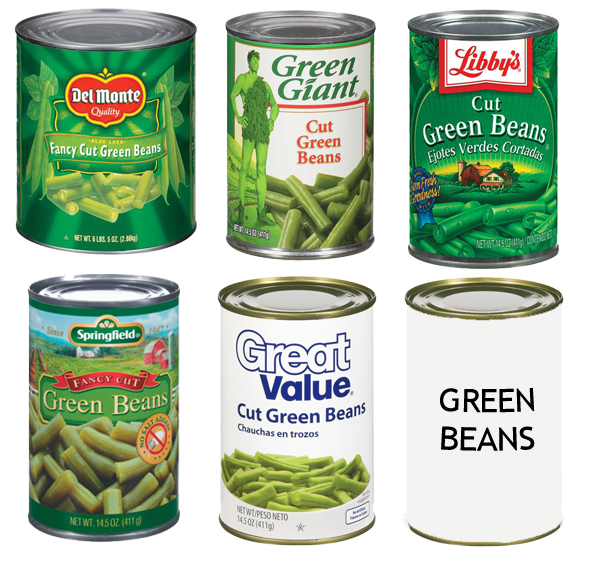
About 99.9% of the time brand name foods are toilet-flushes for grocery money. The next time you’re debating between two brands for the same product, flip them around and compare the ingredients. They’re probably very similar, if not identical (the exception being between organic and non-organic). Where health and money-smart, make discount brands your go-to for small but cumulative savings over time!
5. Buy in bulk when it makes sense.
Will you use a 10-lb bag of limes before they spoil, or is it a useless, attractive bargain? Is the Costco cheese platter the size of Greenland a thrifty deal, or something you never even had on your shopping list?
Buying in bulk can save, but be choosy and do the math first to determine whether it’s worth it. You should also consider buying staple ingredients from bulk/scoop bin stores like Bulk Barn. These carry bins filled with scoop-able ingredients such as oatmeal, cereal, flour, dried fruits, nuts, tea, coffee and are priced by weight. My parents have been shopping here my entire life, and the savings on staple items is pretty astounding!
6. Add cheap meals to your staple recipes.
I’m tired of hearing that eating healthy is incongruent with eating cheap. It's just not true! There are many clean, fresh meals that can be made well under $3 per meal. My own staple list includes chilli, soups, salads (green, bean, and couscous/quinoa), pita pizzas (with a little cheese & lotsa veggies), casseroles, wraps, and slow-cooker meals. Add affordable staples to your list so you don't have to think hard to cook. Because cooking “brain blocks” lead to the temptation to dine out!
7. Acquaint yourself with the art of couponing.
Couponing: it's an easier-than-you-think strategy to cutting costs and growing your travel funds. I've even written a beginner's how-to guide on couponing to prove it's just not that hard!
A great start to couponing is to familiarise yourself with coupon goldmines where you live. Here's a list of coupon & bargain sites around the globe (if you know a good coupon hub in your country not listed here, just fill me in!):
- Australia: OzBargain, BuckScoop
- Canada: Red Flag Deals, How To Save Money, Smart Canucks
- United Kingdom: HotUKDeals, MyVoucherCodes
Now, always remember: don’t just buy something you because it has a coupon!
8. Stop making too much food.
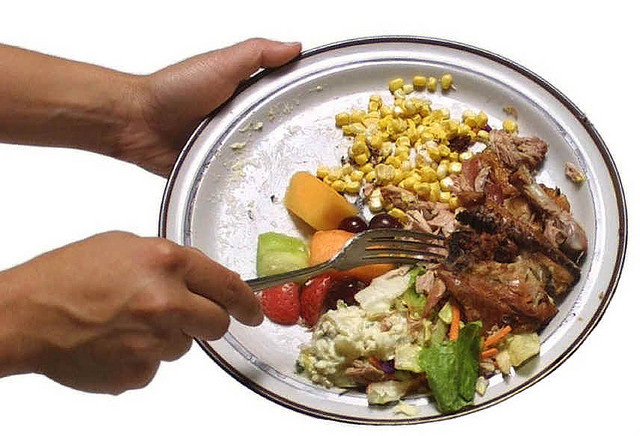
Unless you're the Duggars from 19 Kids & Counting (or is it 21? I can't keep track), stop making enormous quantities of food. As a previous shift-worker, I’m 100% guilty of doing this. Cooking for me was a crazed frenzy of making five meals in a day to last the week before four consecutive days of 12 hour shifts. While I felt accomplished, I frequently made too much, and my efforts were a literal waste as I scooped spoiled meals into the garbage.
When cooking ahead, be realistic in how much you’re going to reheat and eat again. If you’re the kind of person who needs a different meal for dinner each night of the week, then don’t make a 15 litre pot of chilli. When possible, or if you are making huge portions, freeze extras. It helps to know which foods freeze well and which don't and how to freeze properly!
Remember: wasted food is wasted money!
9. Keep inspired to cook at home.
With the array of dining options out there today, I hugely empathise with people's temptation to eat out. I have a theory though. The more you are continually inspired to try recipes, the more likely you are to eat in. Even if it means a slight splurge on ingredients for a new recipe, you're saving a lot by eating at home. So cook something you'd pay for at a restaurant!
How can you do this? By being inspired. Follow foodies on social media. Some of my Instagram favs include: Skinnytaste, BestofVegan, and MyWholeFoodKitchen. (And if there's some that you follow and love, please share below!).
10. Don't grocery shop hungry.
You've heard it before, and I'll say it again: avoid, at all costs, grocery shopping while you are hungry. You will have less patience to make thrifty choices or spot deals, and you're more likely to revert to those pre-packaged, pre-chopped, processed and PRICIER foods.
11. Avoid eating out at all costs.

I put this one last because frankly, it sucks.
Truthfully, we love dining out, but unless you're travelling through Asia or South America, it's a major money drainer. At minimal, reducing the number of times you eat out is the single biggest food saving “hack” I can offer you.
My suggestion? Keep your eyes on the prize. For every meal you decline eating out on, think about:
- How much money you just saved.
- That you're working towards enjoying a more authentic meal somewhere exotic.
- How that money you saved will stretch into daily travel costs. My friend Teddy told me that he makes analyses like, “I could eat this $15 meal, or it could afford for another night at a hostel in South America!”.
I mean, wouldn't you rather be somewhere like here than eating take-out?!

Now, as easy as this series has been for me to think up ideas, I can't pretend that changing food habits is easy. We worked at it hard, and it takes a lot of willpower. But changing our habits amongst other thrifty practices has allowed us to save big and live our dreams to long-term travel. For me, that is unquestionably worth it!
What are some frugal food habits you practice? How do you cut back food costs at home?
Note: thanks to these sites whose photos were featured in this post!







